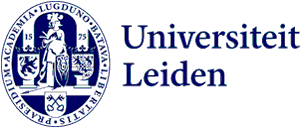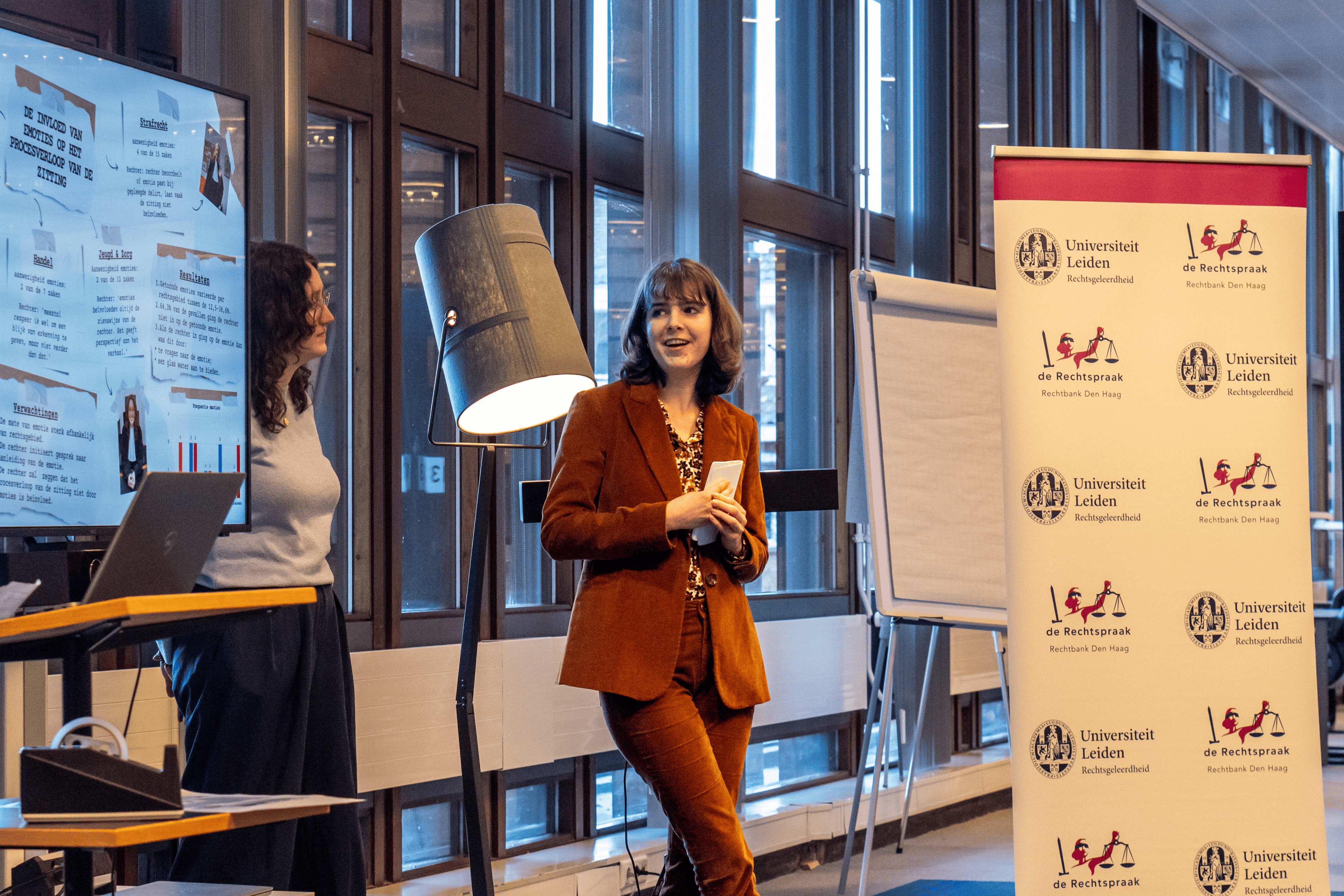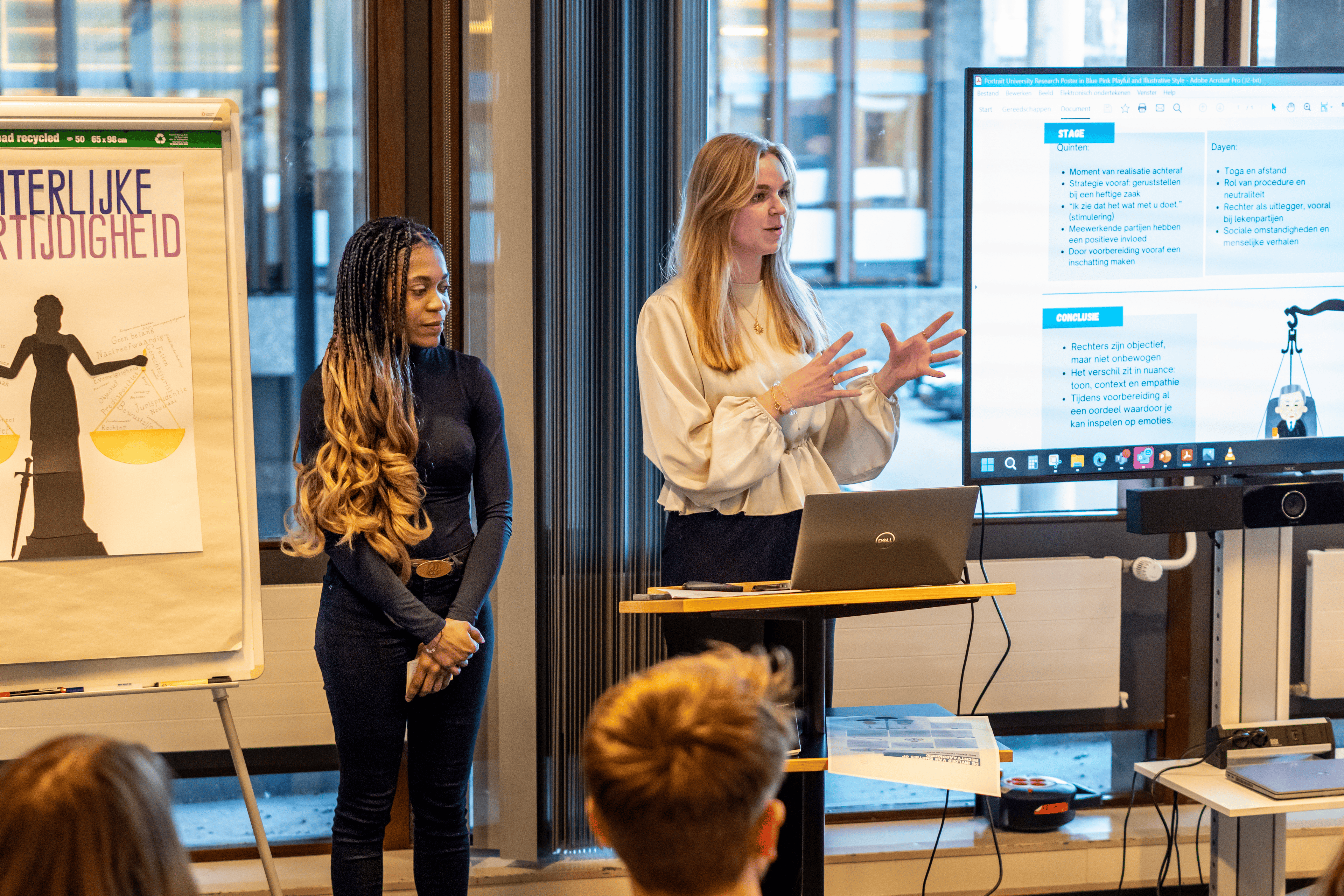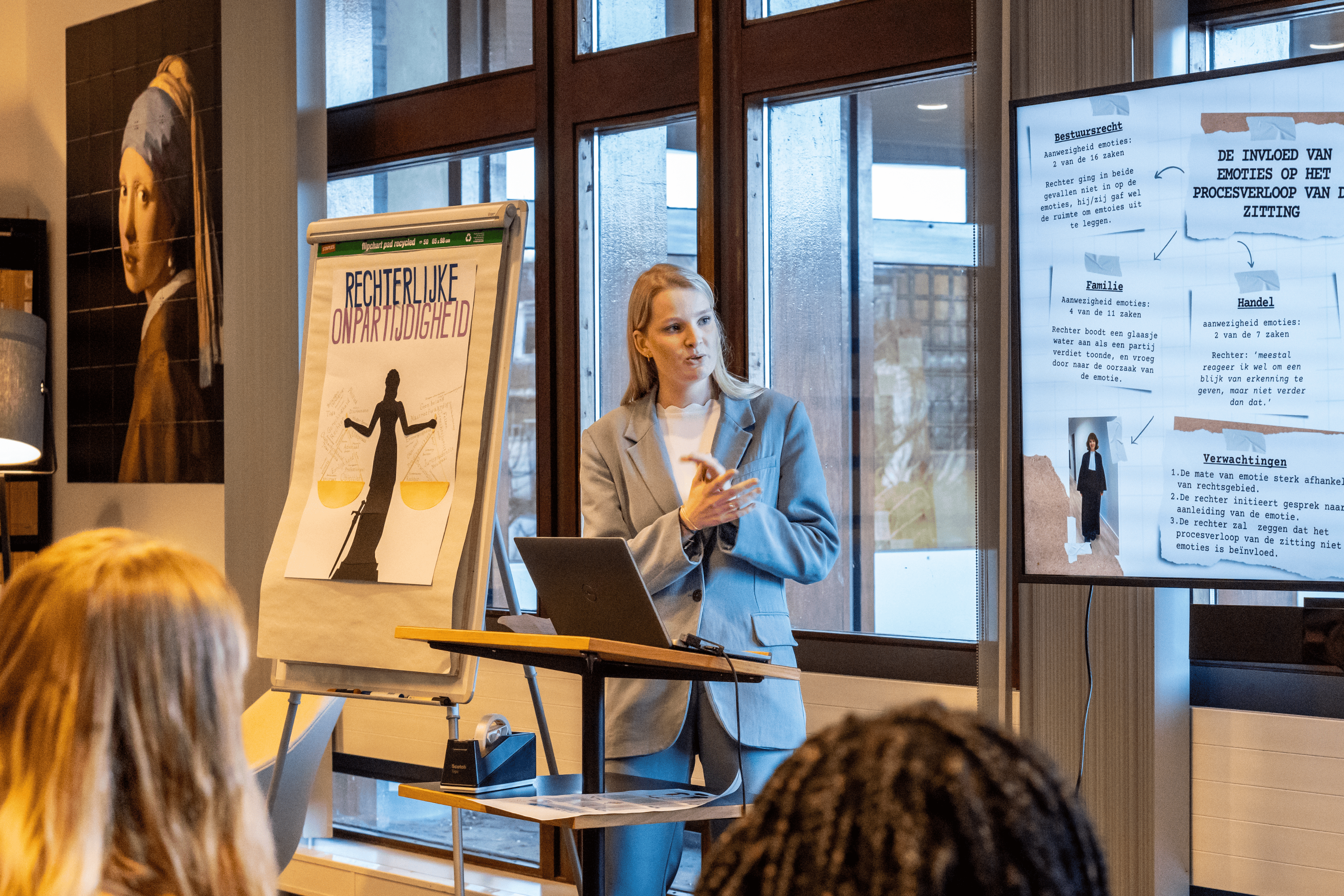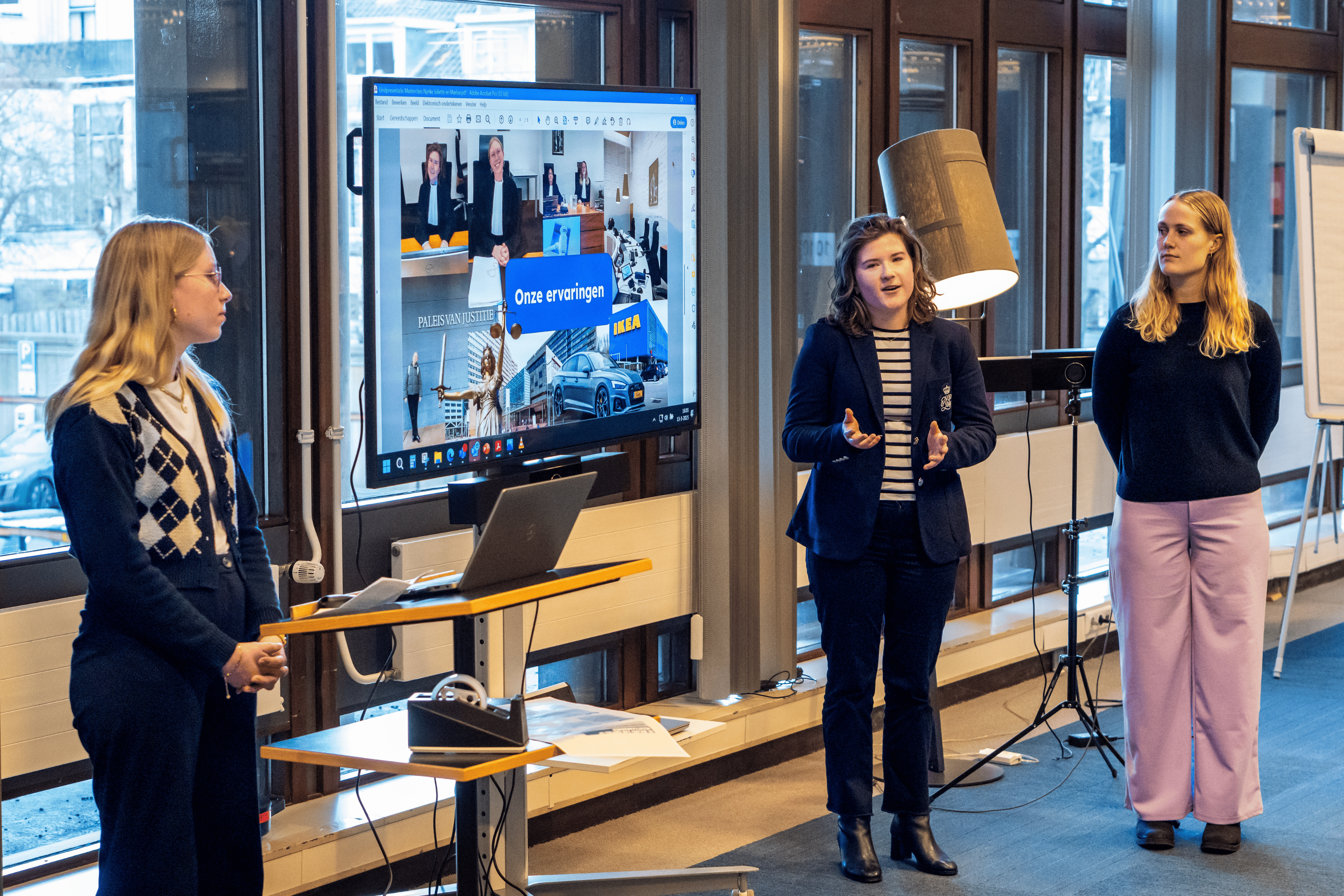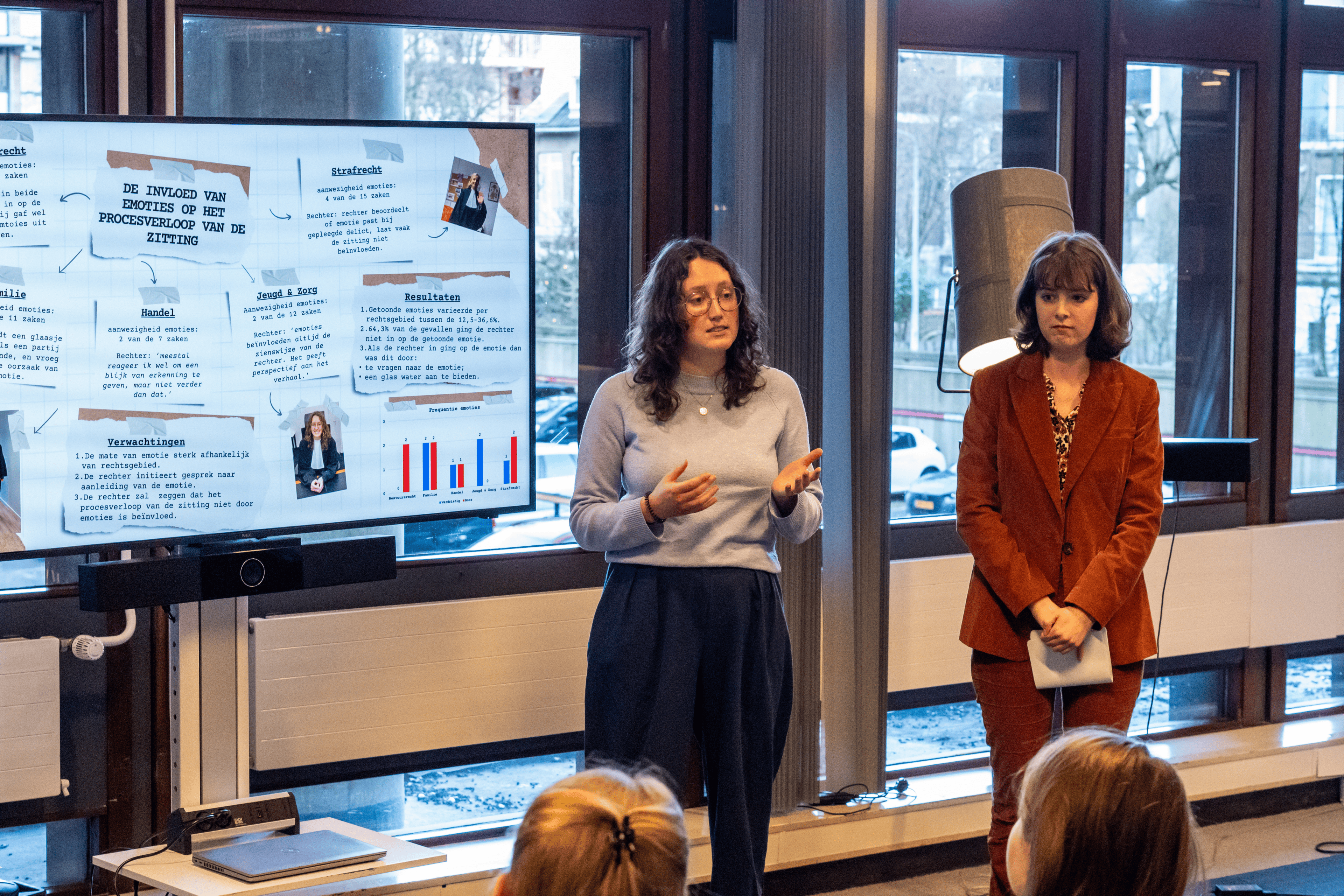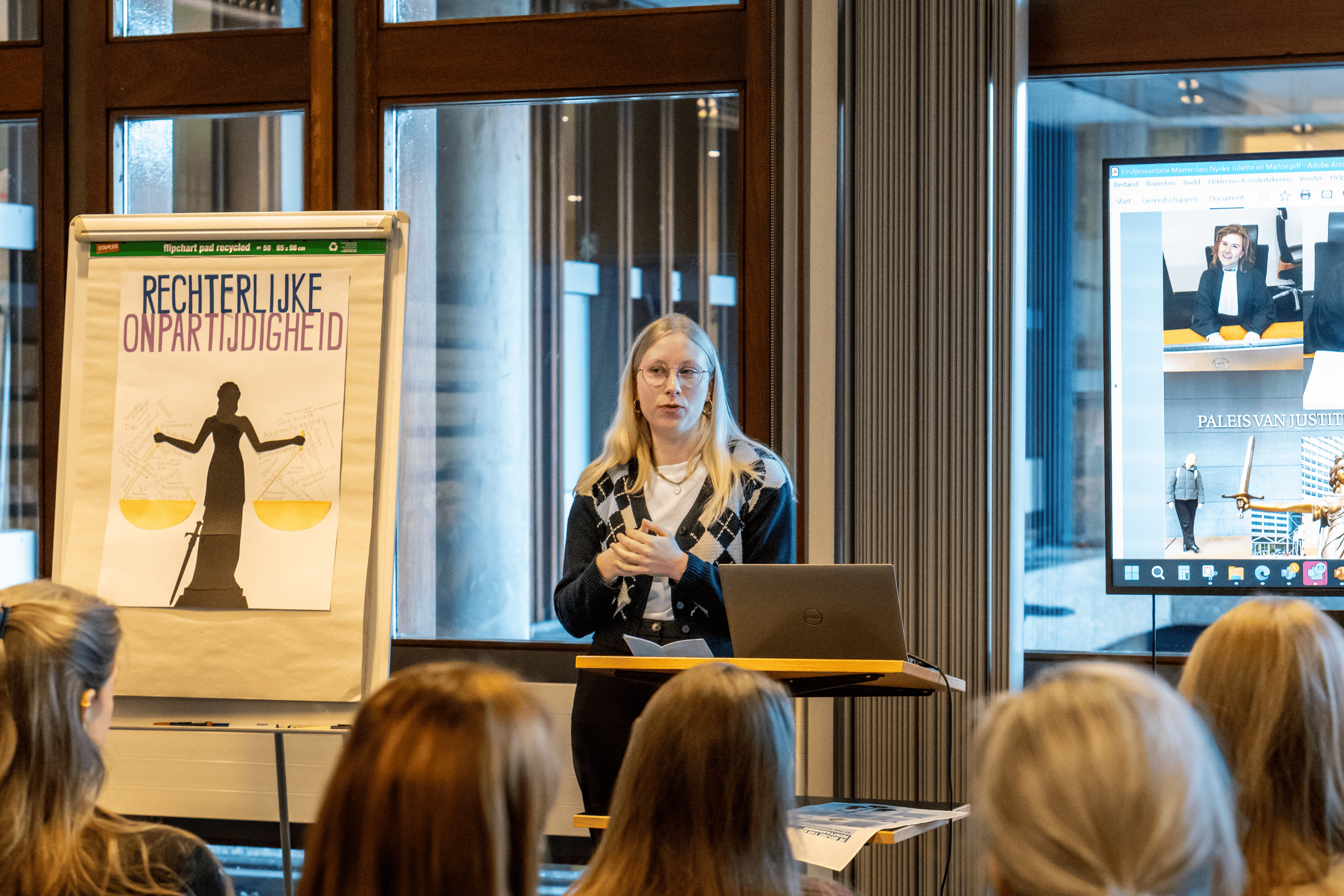
Masterclass at the Court of The Hague: ‘The best way to learn all about the court’
As part of the course 'Masterclass at the Court of The Hague', twelve law students spent several days at the court with judges, court lawyers and legal advisers over the course of seven weeks. At the final session on 13 March, they presented their experiences.
This year, the format for the Masterclass was different. Until now it only consisted of a practical part. 'For students to be better prepared when starting the practical period, this year we developed a comprehensive course for credits in cooperation with Honours College Law,' explains Rogier Hartendorp, Professor by Special Appointment Societal Effectiveness of the Justice System, as well as a judge at the Court of The Hague and a lecturer in the Masterclass. For instance, as part of the course students attended several tutorials on the theory surrounding reaching a judgment, the human element in it and, finally, a workshop on courtroom skills.
During their practical training period, students were introduced to two of the seven areas of law they had chosen, such as criminal law, administrative law, commercial law, insolvency law, tax law, subdistrict court law or family law. They learned about files, prepared hearings and attended deliberations in chambers. At the same time, they focused in separate groups studying:
- The impact of emotions when reaching a judgment
- The extent to which prejudice does or does not play a role among judges
- The influence of emotions in court proceedings
- The degree of judicial impartiality
Chances to offer own input
'I really enjoyed being part of the examining magistrate’s office,’ says Quinten Heerma. 'You’re sitting in a room of 3x3m2 with a suspect accused of serious crimes.' The student had expected the atmosphere within the court to be very formal, but nothing could be further from the truth: 'People are cheerful at the departments and there’s plenty of chances to offer your own input.'
Dayen Doran agrees. She was allowed to work on her own cases: 'I got great satisfaction noticing during a hearing that the judge and court lawyer were discussing precisely the points of interest I’d included in my notes.' Dayen spent time at the Civil Law and Criminal Law divisions. 'The most important lesson I learned is not to take yourself too seriously. You can broaden your knowledge, but in the end, you have to be prepared to make a decision and defend it. Doubting and weighing things up is all part of the job, but at some point you have to dare to take a decision.'
‘The real work’
'I was pleasantly surprised to see how the judge and court clerk worked together. Like most people, I thought the judge handled most of the case and formed an opinion on his or her own, when in reality that’s not how it works,' says Eva Verdellen. 'This cooperation contributes a lot in the process to pass judgment – it acts as a check on impartiality and ensures a good atmosphere. There was no palpable hierarchy and it felt like consultation and feedback were highly valued.'
The students are pleased with the addition of the tutorials and credits for the course: 'It’s a big plus for the masterclass. The lectures given by the professionals are a good preparation for “the real work” in court,' says Quinten. 'The classes are so diverse, so you get to deal with a wide range of key points of law within a short period of time.' Eva adds: 'It gives you a foothold as a lot happens during the practical training period and you get many new impressions. So it’s not only more manageable, but also very interesting as you can consider what you learn on a deeper level and can ask questions.'
Valuable collaboration
‘It was a fantastic experience. It’s unique for a university to have such a long-lasting relationship with a court’, says Quinten. ‘I'd definitely recommend it to other students. You're put through your paces during the practical training, but you’re only a student so the expectations aren’t sky-high. It’s really a great way to learn all about the court in a short space of time.’ Eva: ‘It’s intense, but more than worth it.’
The Dean of Leiden Law School Suzan Stoter concluded the event: ‘We cherish the bond we have with the Court of The Hague – one that's lasted more than 20 years – and hope that our collaboration will continue for a long time to come. It’s wonderful that the court has welcomed our students with such open arms and given them access to the very core of the law.'
Stoter adds that it’s a great advantage that students can already gain practical experience during their studies. 'I’m impressed by the knowledge they acquire and grateful to those who have founded and developed this course. Secretly, I’m a little jealous that I didn’t have this opportunity when I was a student myself.'
The Dutch-taught course ‘Masterclass rechtbank Den Haag’ is offered to third-year bachelor’s law students and master’s law students. The Court of The Hague and Leiden Law School organise this masterclass every year. Are you interested? You can apply again in autumn 2025. Keep an eye on the website!
